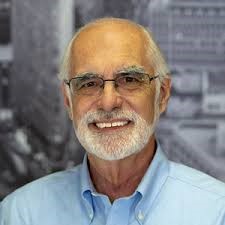American Psychological Association Division 50

What Do We Offer Overdrinkers and Other Mildly to Moderately Addicted People?
More services should be available for mildly to moderately addicted people. They far outnumber those who are severely addicted for which we provide inpatient and outpatient services. For practitioners, a Google search will reveal that very few practitioners offer services for such clients. Here is an opportunity to grow your practice and to serve your community.
For researchers, here is an opportunity to study an underserved but important population (in terms of prevention and possible long-term harm if people become severely addicted).
Recently, I wrote and published a research-based book, Am I Addicted? 64 Questions and Answers to Help You Change an Addictive or Semi-Addictive Behavior. I chose the term “semi-addicted” because the DSM-5 indicates and my clinical experience suggests that addictions exist on a continuum from mild to moderate to severe. “Semi” makes sense to people, and the book is focuses on helping those who have mild and moderate not severe problem behaviors and provides many research-based suggestions.
Given many young people’s unwillingness to read long chapters, I intentionally kept the answers brief, but each is based on research, noted in the back of the book.
Chapter headings include: Do I have a brain disease? Where should I start? What are my options? How can I reduce the harm as I change? Why are addictive behaviors so difficult to change?
According to Dr. Barbara McCrady (a long-time Division 50 Fellow), “The information in Am I Addicted? Is scientifically grounded, written in accessible language, and gives the reader a broad perspective about addictions, the consequences and options for change,” and Dr. Steven Hayes, the founder of Acceptance and Commitment Therapy: “In this practical book, scores of options are explored in an honest, matter of act way. No drama. No guilt and shame. You need to make some choices and to begin to create the kind of life you want—one step at a time. This book will help.”
The following very briefly describes six typical cases
Omar: 56; using alcohol and cocaine; he has built a very successful business over the past thirty years; married; three adult children; Muslim; does not always show up for family functions; has never blacked out, fallen down or received a DUI; slurs words and smells of alcohol and is verbally abusive to wife and children.
Jane: 46; was drinking about a half of a large bottle (1/2 gallon, approx..) of white wine per night; thought “I might have a problem”; practicing clinical psychologist; on anti-depressant; in an ok relationship, but not happy with it.
John: 48; drinks every night, 5pm to approximately10 pm; works very long days as an architect; successful; two young children; continues to put on weight; his father died of a heart attack and his mother had major depression.
Steve: 45; successful tennis coach; sister called worried about him; approximately every three weeks, binge drinks until he blacks out; as has happened in the past, his missing work may cause him to lose his job; he has made it clear that he is not interested in long-term therapy.
Avi: 29, observant, orthodox Jewish man; addicted to phone sex; was occasionally going to strip clubs, but has stopped; wants to get married, but has been diagnosed with major depression, making getting married not impossible but more difficult.
Frank: 33, binge drinks approximately once per month; during those times, abusive to his wife; she is thinking about leaving even though they married only a year ago; he is very successful in a NYC start-up; active in sports; good relationships with his family.
In most cases, these clients do not want to stop their behavior, Avi being an exception. In some cases, I am fairly sure that they will never be able to moderate their drinking behavior. Most people who can moderate do not show up in my office; they resolve the issue on their own. However, these clients are not ready or interested in quitting when they first come to my office. None of these clients are remotely interested in going to an inpatient or outpatient program and some have made it clear that they do not want and cannot afford long-term therapy in terms of time and money. Some are open to taking medications.
What do we as a society and as a profession have to offer such people? They are on-and-off-again motivated to change. They are often trying to figure out what to do and are interested in what they could do. What are their options? How many thousands of them exist?
So many interesting researchable questions!
But the focus in research reports often seems to be either on college-age drinkers or on those who are severely addicted and have been or are in some form of program, often in a hospital. Yet I suspect my clients are similar to thousands of people in our country and elsewhere.
Another long-time Division 50 Fellow, Dr. Reid Hester’s Checkup & Choices offers online help and there may be other, similar websites, but I am not aware of them. Apps to count drinks and monitor other behaviors are available, but none that I know of has been embraced enthusiastically yet (and self-monitoring without a goal does not result in change). (If I am incorrect here, and I may be, I would very much appreciate knowing about it.)
I am hoping that my book will help people resolve their problems before they become very severe. The book may also be a very good addition to a university course on the psychology on addictions. Finally, it could provide a valuable adjunct to the others therapeutic services provided in clinics and private offices.

Resources are available for those struggling with addiction and numerous effective treatments exist. Whether you are looking for help for yourself or a loved one, we encourage you to seek out help.